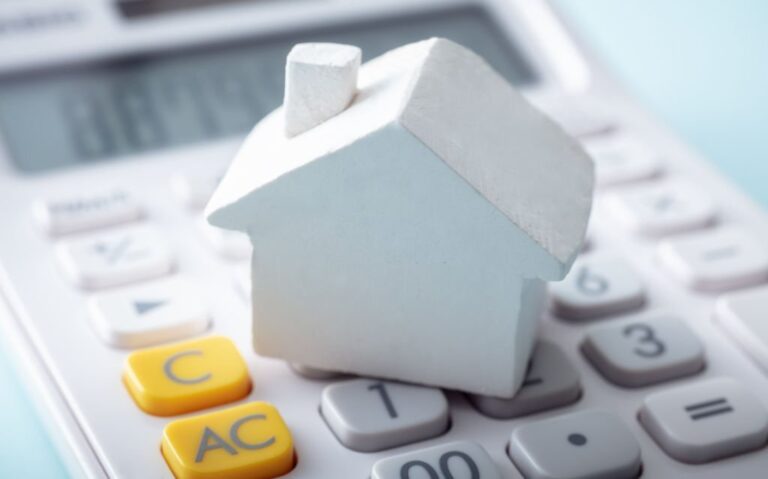The journey to sell your home can be a complicated endeavor. However, you can successfully traverse this landscape with the proper knowledge and preparation. This comprehensive article aims to illuminate the fundamental steps, necessary paperwork, and helpful advice that can facilitate a seamless home-selling process.
Initiating Steps for a Successful Property Sale
When selling a home, the groundwork you lay is pivotal for a profitable sale. Here are the steps you ought to consider:
- Market Analysis: In the realm of real estate, it’s crucial to attain a comprehensive understanding of your local market by observing and analyzing the current trends, evaluating the pricing patterns, and identifying the level of demand. These insights could significantly guide your real estate decisions.
- Property Appraisal: Critically evaluate your home’s condition, aesthetic appeal from the street, and the need for any vital repairs or enhancements.
- Competitive Pricing: Perform a detailed comparison of properties alike and seek advice from a real estate expert to determine a listing price that is both appealing and realistic, thereby ensuring competitive pricing in the market.
- Home Stagging: Enhance your home’s appeal to prospective buyers by creating an organized, clutter-free environment and strategically staging it to highlight its most attractive features.
- Engaging a Real Estate Agent: Collaborate with an experienced real estate expert, well-versed in your locality, to assist you in navigating the complex maze of selling a home.
Essential Paperwork for a Home Sale
To ensure a seamless transaction, the following documentation is required:
- Property Deed: A property deed is a critical document that provides official confirmation and proof of your proprietary rights over the specified property. It serves as a testament to your ownership, marking you as the legal owner of the property in question.
- Title Report: A title report serves as an essential verification tool that affirms your ownership of the property. In addition to confirming your ownership rights, it discloses any outstanding liens or encumbrances on the property, providing a comprehensive picture of any financial obligations tied to it.
- Home Inspection Reports: Home inspection reports offer an in-depth look at the state of the property. They provide valuable information on the house’s condition, highlighting any necessary repairs or maintenance that may be required. These reports can help prospective buyers understand the property’s current state and any future work it may need.
- Property Disclosure Forms: Property disclosure forms act as communicative mediums that share any known issues or defects within the property with potential buyers. They provide a transparent account of the property’s condition, helping buyers to make an informed decision based on disclosed issues or flaws.
- Purchase Agreements: A purchase agreement is a legally binding contract that clearly lays out the terms and conditions of the sale. It acts as a guide for both the buyer and the seller, providing a clear structure for the transaction and ensuring that all parties are aware of their responsibilities and obligations.
Maneuver a Private Home Sale
A private home sale may be attractive for those desiring greater control and the possibility of saving on agent commissions. Keep these tips in mind:
- Fair Listing Price: Utilize online valuation tools and analyze comparable properties to establish an appropriate listing price. By leveraging these resources and comparing similar properties, you can determine a reasonable price for your property.
- Property Promotion: Broaden your reach to potential buyers by employing various marketing channels, including online listing platforms, social media platforms, and traditional marketing methods. This multi-faceted approach will ensure that your property receives maximum exposure and attracts many interested buyers.
- Quality Visuals: Enhance the visual appeal of your property by hiring a professional photographer to capture high-quality photos. Additionally, create a captivating listing description that highlights the unique features and advantages of your property. This combination of visually appealing images and enticing descriptions will attract buyers and generate interest in your listing.
- Open Houses and Private Showings: Present your home to potential buyers through open houses and private showings. Emphasize the distinctive aspects and benefits of your property during these interactions. By showcasing your home to interested parties in a personalized manner, you can effectively communicate its value and increase the likelihood of a successful sale.
- Negotiating and Finalizing the Deal: Prepare yourself for negotiation by being open to offers, carefully reviewing contracts, and, if necessary, seeking legal advice. By being proactive and thorough during the negotiation stage, you can ensure that your interests are protected and that the final deal is advantageous for you.

The Sequential Steps of a Home Sale
Comprehending the successive steps involved in a home sale can aid in maneuvering the process with ease:
- Home Sale Preparation: Prepare your home for sale by completing any necessary repairs, staging the property to enhance its appeal, and gathering all relevant documentation. Ensuring that your home is in top condition and presenting it attractively will increase its market value and attract potential buyers.
- Home Marketing: Maximize the exposure of your property by creating compelling listings, utilizing online platforms, hosting open houses, and actively engaging with potential buyers. Employing effective marketing strategies will help generate interest, attract a wide range of buyers, and increase the likelihood of a successful sale.
- Offer Reception and Negotiation: Evaluate offers received from potential buyers, carefully assess the terms, and engage in negotiations if necessary. Consider counteroffers as needed to ensure that the terms of the sale align with your expectations and requirements.
- Offer Acceptance: Once a suitable offer emerges, accept it as the basis for moving forward with the sale. Acknowledging a satisfactory offer will signal your commitment to proceed with the transaction and advance the sale process.
- Due Diligence Period: During this phase, buyers will conduct inspections, appraisals, and review relevant property documents. This thorough investigation allows buyers to assess the property’s condition, verify its value, and ensure that all necessary information is disclosed. Cooperating with buyers during the due diligence period helps facilitate a smooth transaction.
- Sale Finalization: Work closely with your real estate agent, lawyers, and the buyer’s team to finalize the sale contract, address any contingencies, and prepare for the closing. Collaboration and careful attention to detail in this phase will ensure that all necessary requirements are met and facilitate a successful sale.
What Adds Value to a House?
Several factors can add value to a house and make it more attractive to potential buyers. Here are some key elements that can positively impact a property’s value:
- Renovations and Upgrades: Well-executed renovations and upgrades, such as kitchen and bathroom remodeling, updated flooring, or energy-efficient installations, can significantly enhance a house’s value.
- Curb Appeal: A well-maintained exterior, including a visually appealing facade, landscaping, and a fresh coat of paint, can create a positive first impression and increase the perceived value of a property.
- Location: Properties located in desirable neighborhoods with proximity to amenities like schools, shopping centers, parks, and transportation hubs tend to command higher values.
- Functional Layout: A well-designed and functional layout that maximizes usable space and flows well can increase a property’s value.
- Upgraded Features: Modern appliances, smart home technology, energy-efficient systems, and additional amenities such as a swimming pool or a home office can add value.
- Storage Space: Ample storage solutions, such as walk-in closets, garage space, or well-designed storage areas, are highly valued by buyers.
- Quality Materials and Finishes: High-quality materials and finishes throughout the house, including flooring, countertops, cabinetry, and fixtures, can contribute to a higher perceived value.
- Home Maintenance: Regular maintenance and upkeep can help maintain or increase a property’s value over time.
What Brings Down Property Value?
Several factors can bring down property value, including poor maintenance, outdated features, location in an undesirable neighborhood, lack of amenities, and external factors like noise pollution or limited parking. Economic downturns, oversupply of housing, and general market conditions can also impact property values negatively. Understanding these factors and addressing any issues that can be improved can help maintain or increase property value.
Do You Need Proof of Ownership to Sell a House?
Yes, proof of ownership is required to sell a house. The property deed is the most common document that proves ownership. It establishes the legal title of the property and confirms that the owner has the right to sell it. Other supporting documents, such as previous purchase agreements, survey reports, and title insurance policies, may also be required to ensure a clear and marketable title during the selling process.
It’s important to note that the value added by these factors may vary depending on the local real estate market and buyer preferences. Consulting with a real estate professional can provide valuable insights into specific improvements that can enhance the value of a particular property.
FAQ:
How do you figure out your finances?
Determine your net proceeds, consider potential expenses, and consult a financial advisor for tax guidance and financial implications.
How do you decide if you should sell?
Evaluate your financial situation, consider market conditions, assess lifestyle changes, and align with your long-term goals.
What are the steps in a house sale?
Prepare the house, market the property, receive offers and negotiate, accept an offer, complete due diligence, finalize the sale, and close the deal.
How can I sell my house privately?
Determine a fair price, market your property online and offline, prepare quality visuals, conduct showings, negotiate, and finalize the deal.
What documents are needed to sell a house?
Property deeds, title reports, home inspection reports, property disclosure forms, purchase agreements, and closing statements.
What to do first when selling a property?
Research the market, evaluate your property, set a competitive price, consider staging, and hire a real estate agent.




